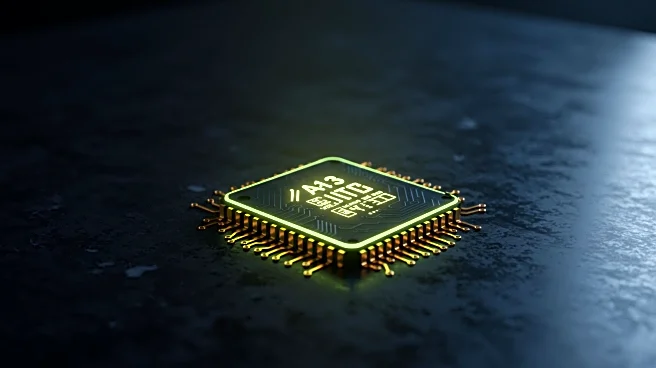What's Happening?
Top Senate Democrats have expressed concerns over the U.S. administration's decision to allow the sale of advanced AI chips to China by companies such as Nvidia and AMD. In a letter dated August 15, six Democratic senators, including Chuck Schumer, Mark Warner, and Elizabeth Warren, urged President Trump to reconsider the policy. They argue that exporting these high-performance computing chips could compromise U.S. national security and technological leadership. The senators highlighted that the administration permitted these sales in exchange for a 15% revenue share with the U.S. government, which they believe offers only short-term financial benefits while potentially weakening America's competitive edge. Nvidia's H20 and AMD's MI308 chips, crucial for training next-generation AI models, are at the center of this debate. The lawmakers warn that these chips could enhance China's military and surveillance capabilities, a claim disputed by Nvidia.
Why It's Important?
The sale of AI chips to China raises significant national security concerns, as these technologies could potentially bolster China's military and surveillance capabilities. This situation underscores the tension between economic interests and national security in U.S. foreign policy. While the sales support domestic semiconductor firms, they also risk enabling China to close the technological gap with the U.S. The debate highlights the need for stricter oversight and additional safeguards to mitigate potential threats. The issue is part of a broader focus on export control policies for emerging technologies with national defense implications. Maintaining a strategic edge in AI is crucial for the U.S., given its central role in the next technological revolution.
What's Next?
The administration faces increasing pressure to align trade policies with evolving security concerns. The open letter from Senate Democrats signals a shift in congressional sentiment, potentially leading to more legislative action. The bipartisan nature of the call for scrutiny suggests that the issue will remain prominent. The administration has yet to respond to the letter, but the ongoing debate may prompt further discussions and policy adjustments.









